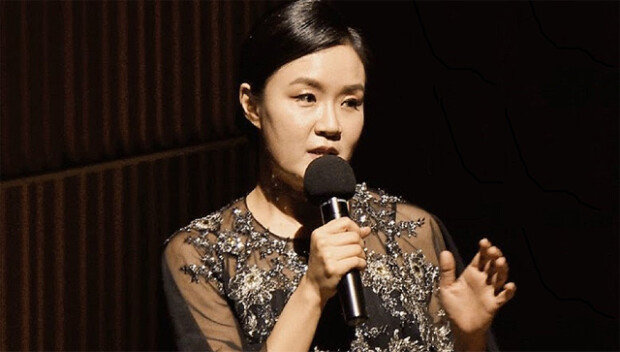How did classical music become sublime?
How did classical music become sublime?
Posted April. 16, 2020 07:47,
Updated April. 16, 2020 07:47

A lecture/recital by a pianist is receiving attention. Pianist Heo Hyo-jung uploaded the videos of her lecture/recital titled, “Pianist Heo Hyo-jung’s humanities recital: How did classical music become serious?” on her YouTube channel early this month. The videos are from her lecture/recital held last year in Seoul, Daegu, and Gwangju. The videos went viral in the musical world after composers and pianists shared them on their social media. “It’s fun to watch and moving at the same time,” said one composer of Heo’s videos. “It’s on another level.”
“I’ve played the piano believing that classical music has special values,” said Heo during her concert. “With the thought that music is also treated as a ‘product,’ I decided to study why people began to think classical music is serious.”
As musicians started to play the music of the former era with an increase in music publications in the 19th century, people began to have the notion that music is historical and high-valued. The expression “classic” also appeared around that time.
In addition, the popular discourse on “sublime” in the Western world of philosophy at that time had great impact on music. After “On the Sublime” by Greek philosopher Cassius Longinus was translated into English, “sublime” became an important topic of discourse in the world of philosophy and composers tried to put “sublime” into their music. Irish philosopher Edmund Burke said sublime is a feeling of fear and joy mixed together as if watching a storm from a distance. This theory had a great influence on musicians, causing them to express darkness and fierceness in their music.
“Musicians of our time should hold onto the identity of sublime,” Heo concluded. “I plan this recital in the hope of exploring the values of music of our time,” said Heo during a phone interview with The Dong-A Ilbo on Tuesday. “At the same time, I wanted to talk about ‘sublime,’ another identity of classical music, with the audience.” Heo is planning to hold a total of seven humanities recitals, about twice a year.
유윤종 gustav@donga.com
Headline News
- Med professors announce intention to leave hospitals starting Thursday
- Bridge honoring Sgt. Moon Jae-sik unveiled in Pennsylvania
- Chief of Staff Chung tells presidential secretaries to stay away from politics
- US FTC bans noncompete agreements
- N. Korea launches cyberattacks on S. Korea's defense companies







